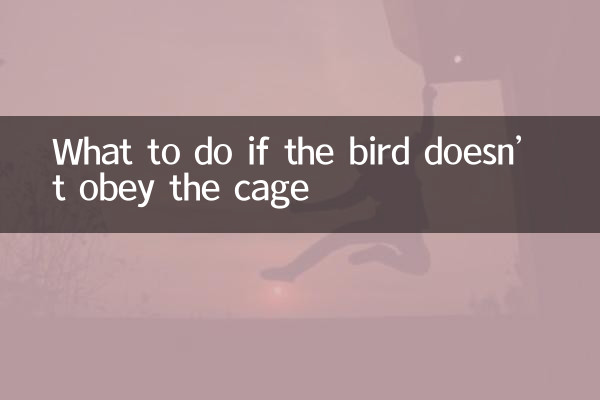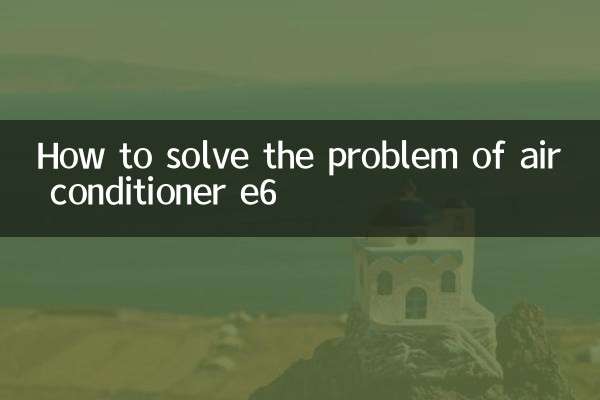What to do if a bird doesn’t want to be caged: A look at bird domestication and psychological adjustment from hot discussions on the Internet
Recently, discussions about the behavioral issues of pet birds have become increasingly popular on social media. In particular, the phenomenon of "birds not obeying cages" has attracted widespread attention among bird owners. The following is a compilation and analysis of hot topics on the Internet in the past 10 days, and provides practical solutions based on expert opinions.
1. Data statistics on hot topics across the entire network

| platform | Amount of related topics | core concerns | Discuss the popularity peak |
|---|---|---|---|
| 12,800+ | Parrot decaging/jailbreaking behavior | June 5 | |
| Tik Tok | 9,300+ | Bird stress response management | June 8 |
| Zhihu | 1,200+ | Mental health of caged birds | persistent high fever |
| Station B | 560+ | Bird Enrichment Toys DIY | June 3-7 |
2. Five main reasons why birds resist cage keeping
According to survey data from animal behaviorist@Feather Observer:
| Cause classification | Proportion | Typical performance |
|---|---|---|
| spatial oppression | 42% | Frequent collision with cage walls |
| social deficit | 28% | Keep tweeting for attention |
| The environment is monotonous | 18% | Pecking feathers/breaking food bowls |
| health hazards | 8% | Loss of appetite |
| territoriality | 4% | Attack the owner's finger |
3. Three-step domestication method practice plan
1.progressive adaptation training
Move the birdcage to different rooms three times a day, stay there for 30 minutes each time, and reward it with snacks. According to actual measurements by Douyin user @鸟keeper uncle, this method improved the parrot's cooperation in the cage by 67%.
2.Environmental Enrichment Transformation
• Add perches laterally (spacing ≥ 1.5 times bird body length)
• Hanging cuttlefish bones for nibbling
• Change toys of 3 different textures every week
3.Social time management
| Bird seeds | Minimum ventilation time | Best interactive time |
|---|---|---|
| budgerigar | 2 hours/day | 9-11pm |
| cockatiel | 3 hours/day | 16-18 hours |
| Fumintiao | 1.5 hours/day | 7-9 p.m. |
4. Analysis of controversial views
In the popular discussion on Zhihu, there are two schools of thought on "whether withdrawal should be forced":
•behavioral school(72% support): Insist on fixed command training, and it is recommended to use a special return rod
•natural school(28% support): Advocate setting up semi-open cages to allow free entry and exit
Avian veterinarian @Dr.Claw reminds: Forced cage confinement may cause stress gastritis, and the state of the feces needs to be observed (normally it should be cylindrical, with a white uric acid coverage of more than 75%).
5. Emergency handling
When refusing to feed or violently hitting the cage for 24 hours:
1. Immediately cover the top of the cage with black cloth (leave 30% breathable area)
2. Play rainforest white noise (below 50 decibels)
3. Before consulting the exotic pet hospital, you can provide electrolyte water (recipe: 500ml water + 1g salt + 5g glucose)
Recent Taobao data shows that the search volume for "anti-collision cage" has soared 210% week-on-week. However, experts suggest that long-term use may lead to vitamin D deficiency, and one hour of natural light should be ensured every day.
By understanding the psychological needs of birds and providing appropriate environmental stimulation, most "cage dissatisfaction" problems can be improved within 2-4 weeks. Remember that the cage should not be a prison, but a safe haven of your own choosing.

check the details

check the details